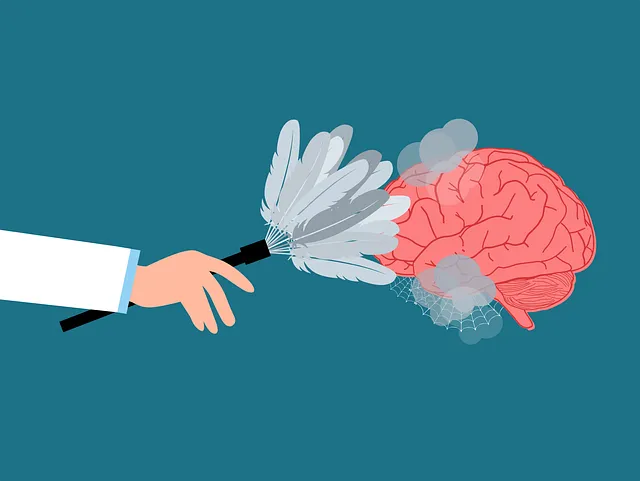Resilience, crucial for mental well-being, is cultivated through the RFM framework (Resources, Fortitudes, Motivation) by Denver Kaiser Permanente behavioral health. This approach equips individuals to confront challenges with optimism, self-efficacy, and emotional regulation. Their services, including telephone resources, cognitive reframing, and conflict resolution training, promote stress reduction and mental illness stigma reduction. The Denver Kaiser Permanente behavioral health phone number offers tailored support, workshops, and programs for building resilience, managing stress, and fostering lasting well-being.
Resilience is a powerful tool in navigating life’s challenges. RFM (Recovery, Flexibility, and Mastery) offers a structured framework for building this strength. This article explores how Denver Kaiser Permanente Behavioral Health Services utilizes RFM-based exercises to empower individuals. We’ll delve into various types of resilience-building activities, providing valuable resources for those seeking support. For immediate assistance, remember to reach out to the Denver Kaiser Permanente behavioral health phone number for guidance and access to available resources.
- Understanding RFM: A Framework for Resilience
- The Role of Denver Kaiser Permanente Behavioral Health Services
- Types of Resilience-Building Exercises
- Accessing Support: Phone Numbers and Resources
Understanding RFM: A Framework for Resilience

Resilience is a cornerstone of mental well-being, enabling individuals to navigate life’s challenges and adversities with strength and adaptability. This is where RFM—a framework developed by Denver Kaiser Permanente behavioral health experts—enters as a powerful tool. RFM stands for Resources, Fortitudes, and Motivation, three interconnected elements that contribute to an individual’s resilience.
Resources refer to the internal and external assets an individual possesses, such as social support networks, coping skills development, and mental health awareness. Fortitudes encompass personal qualities like optimism, self-efficacy, and emotional regulation—competencies often cultivated through Compassion Cultivation Practices. Motivation, on the other hand, drives individuals to persevere, setting goals, taking action, and maintaining a positive outlook despite hardships. By understanding and strengthening these components, RFM empowers people to build resilience, fostering their ability to cope with stress and overcome obstacles.
The Role of Denver Kaiser Permanente Behavioral Health Services

Denver Kaiser Permanente Behavioral Health Services plays a pivotal role in fostering resilience and supporting individuals through challenging emotional healing processes. Their dedicated team offers a range of specialized services, including trauma support, to help those facing anxiety relief or other mental health concerns. With a focus on comprehensive care, they provide telephone-based resources, ensuring accessibility for those who may not be able to visit in person. This approach extends their reach and makes high-quality behavioral health support available to a broader community.
Through innovative practices and a deep understanding of the human mind, Denver Kaiser Permanente Behavioral Health Services guides individuals towards building mental fortitude. They recognize that resilience is a crucial aspect of overall well-being and work collaboratively with clients to navigate life’s complexities. By combining evidence-based therapies with compassionate care, they empower people to overcome adversity and lead fulfilling lives.
Types of Resilience-Building Exercises

Resilience-building exercises come in various forms, each tailored to strengthen individuals’ mental wellness and coping mechanisms. One effective approach is cognitive reframing, where individuals learn to challenge negative thought patterns and replace them with more positive and realistic perspectives. This technique, encouraged by behavioral health experts like those available at the Denver Kaiser Permanente phone number, empowers people to navigate challenging situations with enhanced emotional resilience.
Another crucial aspect is emotional regulation training. This involves teaching individuals skills to recognize and manage their emotions effectively. Through practices such as mindfulness meditation and deep breathing exercises, folks can reduce stress and anxiety levels, fostering better mental illness stigma reduction efforts. Additionally, conflict resolution techniques are integral to building resilience, equipping individuals with strategies to navigate interpersonal challenges constructively, thereby strengthening their overall ability to cope with life’s demands.
Accessing Support: Phone Numbers and Resources

Accessing Support is a crucial step in building resilience and managing stress. In Denver, one reliable resource is the Kaiser Permanente behavioral health phone number, offering expert guidance and assistance to those seeking help. This organization provides a range of services, including therapy options and support groups, tailored to individual needs. Many people find solace in these initiatives, especially when navigating challenging life situations or dealing with anxiety.
Additionally, numerous local workshops and programs focus on stress management and self-care routine development for better mental health. These initiatives equip individuals with tools to enhance their resilience, providing valuable resources for anxiety relief. By reaching out to these support networks, individuals can take proactive steps towards a healthier and more resilient mindset.
Resilience is a powerful tool in navigating life’s challenges, and Denver Kaiser Permanente Behavioral Health Services plays a vital role in empowering individuals to build this strength. By understanding the RFM framework and exploring various resilience-building exercises, one can enhance their ability to cope with stress and adversity. The resources provided, including the dedicated Denver Kaiser Permanente behavioral health phone number, offer a supportive network for those seeking guidance and assistance. Embracing these practices can lead to profound personal growth and a more resilient mindset.


